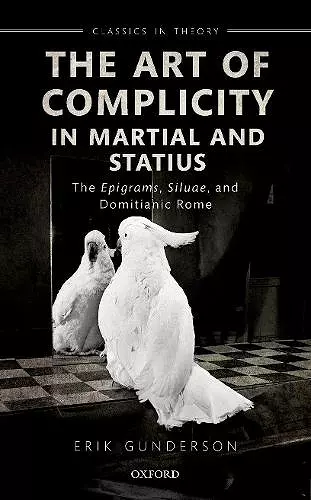The Art of Complicity in Martial and Statius
Martial's Epigrams, Statius' Silvae, and Domitianic Rome
Format:Hardback
Publisher:Oxford University Press
Published:5th Aug '21
Should be back in stock very soon

The Art of Complicity in Martial and Statius examines the relationship between politics and aesthetics in two poets from the reign of Domitian. Gunderson offers a comprehensive overview of the Epigrams of Martial and the Siluae of Statius. The praise of power found in these texts is not something forced upon these poems, nor is it a mere appendage to these works. Instead, power and poetry as a pair are a fundamental dyad that can and should be traced throughout the two collections. It is present even when the emperor himself is not the topic of discussion. In Martial the portrait of power is constantly shifting. Poetic play takes up the topic of political power and 'plays around with it'. The initial relatively sportive attitude darkens over time. Late in the game we have ecstasies of humiliation. After Domitian dies the project tries to get back to the old games, but it cannot. Statius' Siluae merge the lies one tells to power with the lies of poetry more generally. Poetic mastery and political mastery cannot be dissociated. The glib, glitzy poetry of contemporary life articulates a radical modernism that is self-authorizing, and so complicit with a power whose structure it mirrors. What does it mean to praise praise poetry? To celebrate celebrations? Gunderson's discussion opens and closes with a meditation upon the dangers of complicit criticism and the seductions of a discourse of pure art in a world where the art is anything but pure.
...indispensable reading not only for students of Roman poetry but also for those interested in the inevitable distortions to which poetic language becomes subjected in any totalitarian culture. * Alexander Kirichenko, Humboldt University, Bryn Mawr Classical Review *
ISBN: 9780192898111
Dimensions: 223mm x 145mm x 27mm
Weight: 706g
420 pages